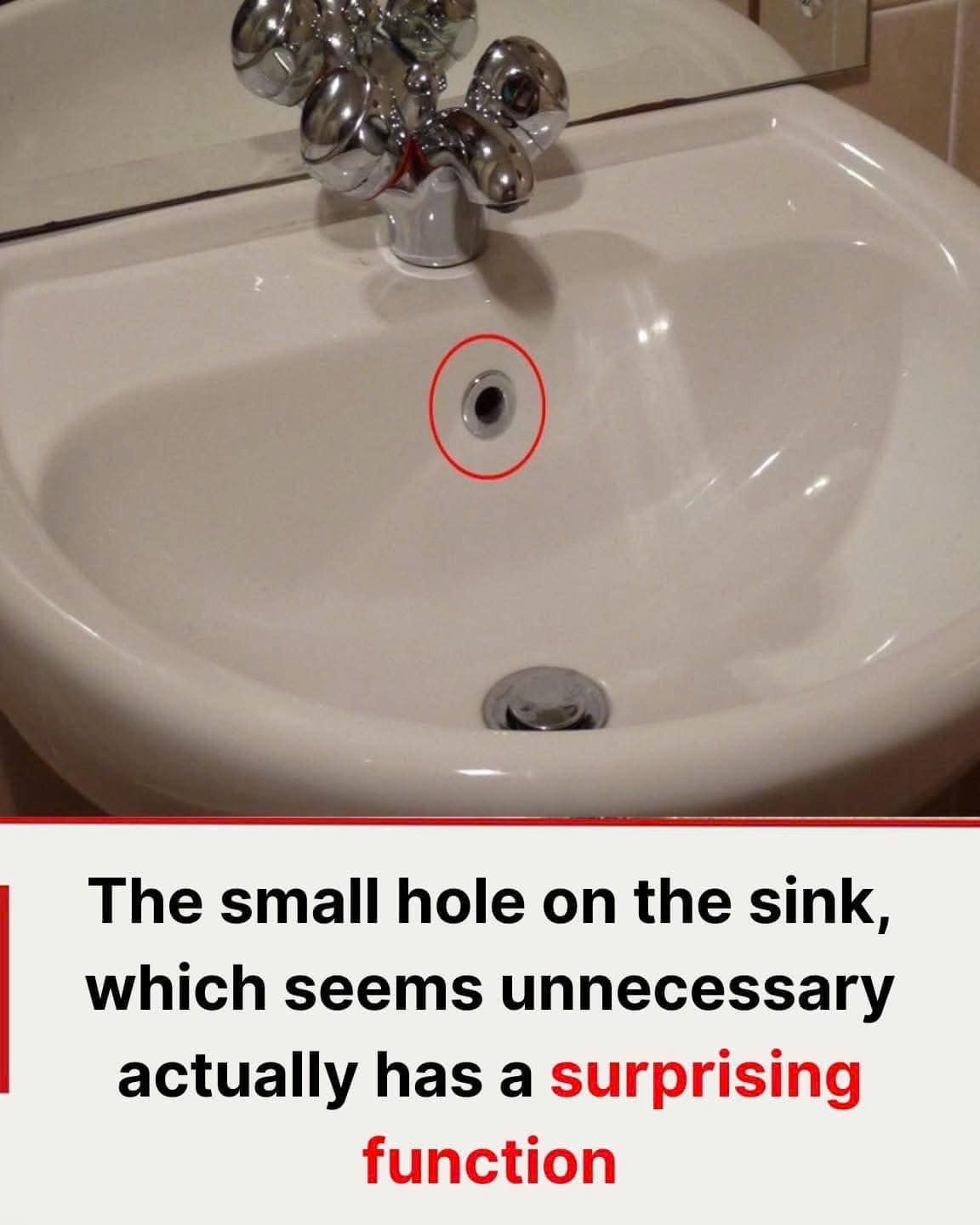Most bathroom sinks feature a small, often overlooked hole located near the faucet, approximately one-third of the way up the basin. Many people wonder about the purpose of this seemingly minor design element. Here’s a closer look at its function and how to maintain it effectively.
Purpose of the Overflow Hole
This small hole serves a critical function in the design of your sink. Connected to the drainage pipe below, the overflow hole is a thoughtful feature designed to prevent water from spilling over the edge of the sink.

How It Works:
- Overflow Prevention: During regular use, if you inadvertently leave the faucet running or get distracted (for example, while answering a phone call), the water level in the sink can rise. Once it reaches the level of the overflow hole, water is redirected through this hole into the drainage pipe below, thus preventing potential flooding and water damage to your bathroom floor.
- Design Consideration: The inclusion of this overflow feature reflects a well-considered design, anticipating common scenarios where users might inadvertently overfill the sink.
Potential Issues with the Overflow Hole
While the overflow hole is beneficial, it can also present some challenges:

- Bacteria and Mold Accumulation: Due to its location, the overflow hole can easily collect water, soap scum, and other residues. This can lead to the growth of bacteria and mold, potentially causing unpleasant odors to emanate from the hole.
- Odor Management: If you notice a foul smell coming from this small hole, it’s likely due to the buildup of grime and bacteria. Fortunately, there is a simple cleaning solution.
Cleaning the Overflow Hole
To keep your sink and bathroom smelling fresh, follow these steps to clean the overflow hole:

- Prepare a Cleaning Solution: Mix equal parts of baking soda and vinegar. The combination creates a chemical reaction that helps dislodge and clean dirt and residues from the pipes.
- Apply the Mixture: Pour the mixture into the overflow hole. Allow it to sit and react for about 5 to 10 minutes.
- Flush with Warm Water: After the reaction has taken place, flush the sink with warm water to rinse away any remaining residue and ensure the pipes are clean.
By regularly cleaning the overflow hole, you can prevent unpleasant odors and maintain a hygienic environment in your bathroom.
The small hole near your bathroom sink’s faucet is not merely a design quirk; it’s a functional feature intended to prevent overflows and potential water damage. While it can sometimes be a source of bacteria and odors, proper maintenance using simple household ingredients can keep it clean and your bathroom fresh. Understanding and caring for this feature ensures that your sink remains both functional and pleasant to use.
